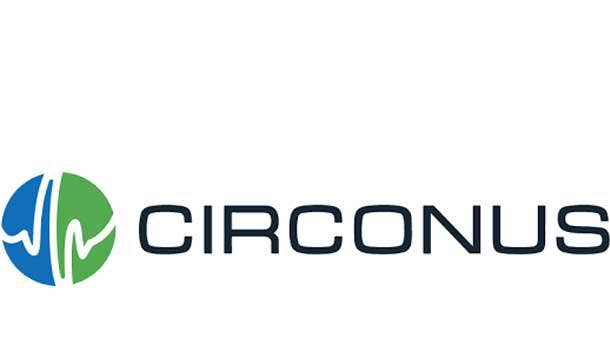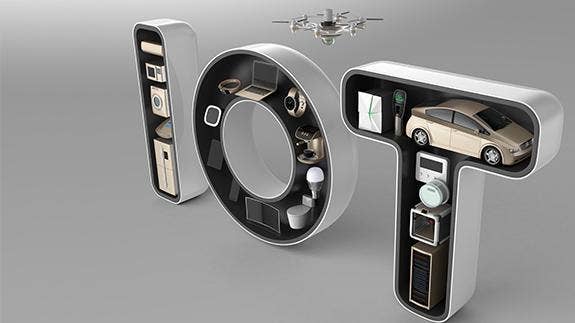Ex-Dell Boomi CEO Takes On IoT Analytics, IT Monitoring With Circonus
Former Dell Boomi CEO Bob Moul is taking on IoT analytics with machine data intelligence startup Circonus.

Platform's Purview: 'From Servers To Robots'
Bob Moul says the technical capabilities of the new startup he's leading are “mind-boggling.”
As the new CEO of Circonus, Moul is looking to make big plays in IT monitoring and IoT analytics with the Fulton, Md. startup's machine data intelligence platform, which he claims can handle trillions of data points per second from a variety of sources and serve real-time alerts and analysis.
[Related: 10 Hot IoT Companies You Need To Watch In 2020]
"It's mind-boggling, and it's exciting. So that's why I'm here," he said in an interview with CRN.
In the IT world, the Philadelphia-based Moul is perhaps best known for his time as CEO of Boomi, the cloud application integration provider he sold to Dell in late 2010. A serial entrepreneur, he has led other startups, including Artisan Mobile, Edmunds GovTech and Cloudamize.
After joining Circonus last fall, Moul is ready to shift the startup into overdrive. Last month, it raised a $6.8 million Series A1 funding round led by Osage Venture Partners to hire more employees and expand its sales and marketing efforts to become a formidable player in the world of IT infrastructure and IoT.
For Moul, the key differentiator for Circonus in the IoT space is the startup's ability to process a massive volume of machine data for everything “from servers to robots,” giving businesses richer and more accurate analyses of their business processes for improved decision-making.
"The more data at a higher frequency, higher resolution, that allows you then to do more accurate analysis, better predictive capabilities and more confidence in all the things that you do," he said.
What follows is an edited transcript of CRN's interview with Moul, who talked about the company's IoT capabilities, the parallels he sees between Boomi and Circonus and how Major League Baseball is using the startup's platform to improve the ballpark experience.

What did you see in Circonus that led you to join the company?
For me, the things I always look for — great tech — so the company certainly has great tech, a great team, a great founder. [Founder] Theo Schlossnagle is a very highly regarded computer scientist, brilliant guy. And the other thing is market size, and it's just a massive market — big problem. And usually when all of those things line up, the odds of a great outcome are much greater. So when you have a big market, a big problem and great tech and great team, good things usually follow.
Where does Circonus fit within a company's IoT infrastructure?
We would be the analytics intelligence platform behind all of that. What we're seeing, generally speaking, is, people tend to get really enamored with tech, the sensors, the devices and the potential. I don't know the exact percentage, but there's a fair number of IoT proof of concepts that actually never make it to deployment, and our belief is that one of the big reasons behind that is making sense of the data. You've got to be able to harness the data and make sense of it in order to get the value out of it. And we think that analytics is the missing link really to business value. So that's the piece we play.
More importantly or as importantly, the key here is to be able to handle the volume. The volume of data produced by infrastructure and IoT is like on an order of magnitude we have never seen before. I can't find any reliable estimates of even how much machine data is out there and being generated. And so you've got to be able to handle the volume, the frequency of the data in order to be able to really get the best value out of it. The more data, at the higher frequency, higher resolution, that allows you then to do more accurate analysis, better predictive capabilities, more accuracy, more confidence and all the things that you do. So that's the other strengths that I think we bring to the to the picture.

Would you consider Circonus to be just an IoT play, or is there something else?
We look at machine data sort of across the whole spectrum. It also incorporates IT infrastructure, which is actually the early roots of the company, infrastructure monitoring. So if you think of servers, virtual servers, [virtual machines], even containers and serverless — all of that infrastructure produces enormous amounts of machine data as well as IoT. And then IoT, we tend to think of it, at least we do in terms of industrial IoT, which has been around for a while and the later developments and advancements in consumer IoT. But whether it's a server or device or sensor, they all emit data. The technical term is telemetry data, like measurements and things like that. And we look at the market sort of horizontally across all different types of devices and the ability to do all sorts of good things with that.
On the infrastructure side, it could be monitoring, for sure, doing anomaly detection and fault detection. As you think of it on the value continuum, we also would think of optimization, so the ability to optimize the performance of devices, but beyond that even optimizing services to make sure, for example, that a digital streaming service is flawless for end users. Predictive capabilities, predictive analytics or predictive quality, predictive maintenance —those types of things, all the way through to monetization. I would put monetization on the other end of the spectrum, which is, are there ways to use this data in new and novel ways to create completely new revenue streams? We think of the industry horizontally in terms of all types of machines, from servers to robots, as I always say. And we think of the things that we can do with that data as being on a continuum from monitoring through monetization.

When it comes to the IoT capabilities you have in terms of processing and analyzing data, where would you say Circonus is competing?
It's a pretty fragmented market. So we have some companies on the monitoring side. You would have obviously seen the likes of Datadog and SignalFx — and Wavefront will be another similar type. On the IoT side, there's a lots of different vendors and lots of different approaches. I don't really see any specific competitors. I think what's unique about what we're doing is [that we're] approaching it holistically from a pure machine data standpoint. I think that's one big differentiator.
And then I think the other one is our ability to handle scale. We have patented histogram technology, which is hyper compression technology that allows us to get data off of very small IoT devices, low-energy, Bluetooth-type enabled devices, take that data, compress it, transmit it, ingest it, store it and then maintain it for long periods of time because we're able to get the efficiencies from the compression. It allows us to do things, for example, like with our ingestion rate: we can ingest a trillion measurements a second, which is industry leading. We can handle billions of metric streams, which again is industry leading. We can, because of the unit economics and efficiencies, we can retain that data for long periods of time. So that's what really sets us apart, we believe, from the other vendors.

Do you see any parallels between what Circonus is doing and your time at Boomi?
I do see some parallels in when I first was looking at the company. I saw some immediate parallels. For example, the ability I just talked about in terms of getting data off of difficult places, to access, in this case, IoT devices. One of the very clever innovations at Boomi was being the ability to take this self-contained integration process and drop it behind a firewall, and that was the magic that allowed us to connect on-prem apps to cloud apps without having to install software, hardware, whatever. So the same sort of thing here. We've got some very clever data collection, compression, transmission, injection technology that that is the magic behind what we do at Circonus.
And then I think the other parallel is just what you're able to do with the data once you have it. In Boomi's it created a whole ecosystem of interconnected applications and really lightened the burden of people needed to stitch all these apps together. In Circonus' case, I think it's using that data to unlock incredible value in all of machine data that's being generated in the industry today.
Can you talk about customers and what customers are doing with Circonus?
There are a number of use cases we can talk through. We have a customer called Xandr, which was AppNexus. It's now an AT&T company. They're a [demand-side platform], it's an adtech platform, so they do auctions that happens in milliseconds behind the scenes that serve up ads on your webpage. We're ingesting a half a billion metrics per minute with them. They're actually using that data then to be able to detect fraud on the platform, which I think is a super cool use case. We just signed Major League Baseball earlier this year. They're using us to monitor their statistics API that drives all of the [information you see] when you go to a ballpark, like when the batter comes up and you see the stats out on the left field wall. Also, all of the downstream sports betting and fantasy league baseball [information]. We're talking several hundred million users of that data are consumers of that data. We're making sure that all is running. We look at latency of the API. They are actually consuming billions of data points to make sure that the service is running is running smoothly.
On the IoT side, we have a very large prospect doing a proof of concept right now in the oil and gas space, where they're taking high frequency measurements off of their wellhead and using that high frequency data — incredible amounts of dense and rich data — to optimize their fracking operation. And so what I really get excited about is — it's funny. It's kind of a parallel with Boomi as well. It's hard to get excited about integration when it doesn't work, it's painful and when it does, everybody just assumes it's going to work. So it's kind of taken for granted. And I think machine data is kind of that. [People say,] what's interesting about machine data? And the reality is, lots of very fascinating things that you can do once you're able to harness it and make sense of it. And these are some examples [where] what I like is how close and tightly coupled it is with business value. This is not an abstract thing to get your head around, like you're improving services, you are optimizing efficiency and operation, which are all very, very valuable to the enterprise.

What kind of channel partners are you looking for on the reseller side?
We think particularly with IoT, that space really lends itself well to a channel approach. That could be everything from large system integrators, consulting firms who working with companies to implement strategy. What we bring there is the meat that we can add to the bones, if you will, of helping those customers make sure they get the ROI on those Investments they're making. We think that people who have already been in the industrial IoT space, for example, who need an upgrade to their analytics capabilities and the ability to handle volume of data. We also have a very highly performant — again, I would put it in the industry leading class — time series database called Circonus IRONdb. We think that they will be natural partners as well. We think, much like Boomi, quite a lot of our revenue we'll think will be driven through the channel.